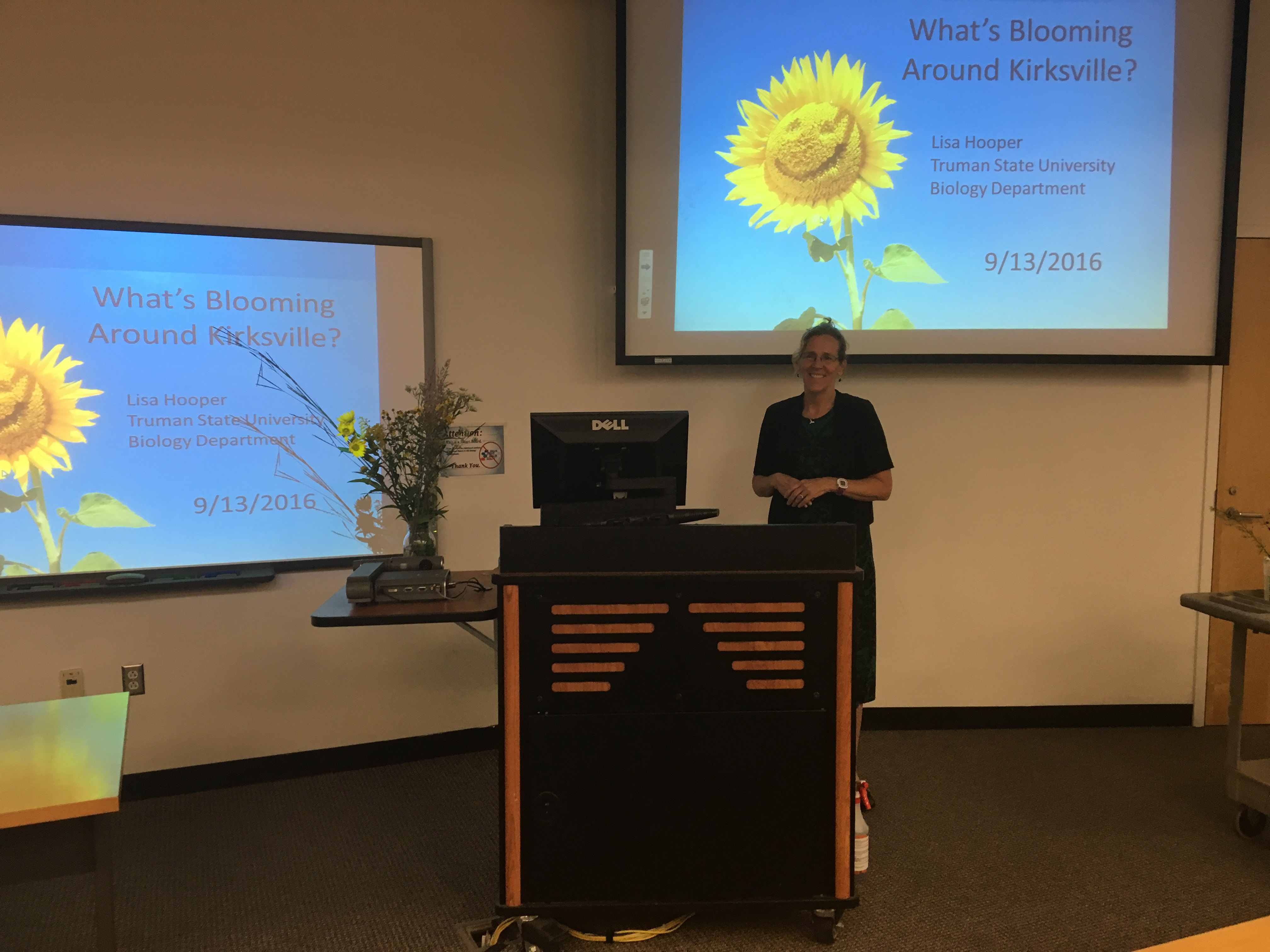
This semester the Kirksville Natural History Club will sponsor and construct various presentations and events regarding different aspects of natural history and biology.
The first of the presentations was given by Lisa Hooper, Truman State University biology professor and Natural History Club member, Sept. 13 in Magruder Hall. Hooper says she feels passionate about the topic because she teaches Local Flora and Plant Taxonomy at Truman State.

Hooper kicked off the first of the club’s presentations by talking about plants, specifically fall wildflowers. Hooper says she had to pick a topic that people with varying levels of knowledge about plants, as well as people who are familiar or unfamiliar with the Kirksville area could relate to. Hooper says during the transition between late summer and early fall, the most noticeable plants this time of year are the members of the sunflower family. Hooper says Kirksville citizens probably have spotted lots of flowers with pretty yellow, white and purple hues and maybe don’t realize that just because the plants are different colors and might not look similar, it doesn’t mean the flowers are not part of the same plant family. In fact, Hooper says there are tens of thousands of species of sunflower alone, and she hoped she gave a sense of the variety of flowers out there.
Hooper says she wanted to keep the presentation informal and wanted to provide background information about local plants that people might see on the side of the road by bringing in actual plants to pick apart.
Hooper says this presentation was trial and error for the Natural History Club to gauge its Kirksville audience and see what the citizens want to see it do with the club and its resources. Hooper also says the club might include wildflower and bird-spotting walks in the future.
